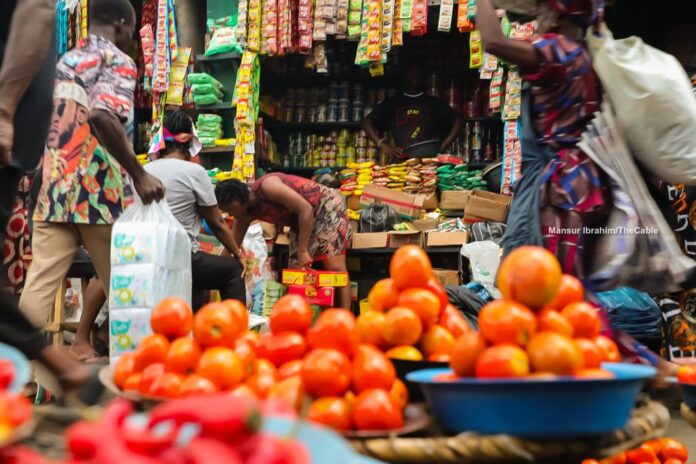Nigeria’s inflation rate has continued its downward trend for the second month in a row, decreasing from 34.19% in June to 33.40% in July, and further to 32.15% in August, according to the National Bureau of Statistics (NBS) report released on Monday.
The Consumer Price Index (CPI) report reveals that the headline inflation rate for August 2024 stands at 32.15%, a reduction of 1.25 percentage points from July’s rate of 33.40%. However, this rate is still 6.35 percentage points higher compared to August 2023, which recorded an inflation rate of 25.80%.
On a month-on-month basis, the inflation rate in August 2024 was 2.22%, slightly lower than the 2.28% recorded in July. This indicates that the rate of increase in average prices has slowed compared to the previous month.

Food inflation in August 2024 reached 37.52%, marking an increase of 8.18 percentage points from the 29.34% recorded in August 2023. The rise in food inflation is attributed to higher prices for items such as bread, maize, grains, guinea corn, cereals, yam, Irish potatoes, water yam, cassava tuber, palm oil, and vegetable oil.
On a month-on-month basis, food inflation in August was 2.37%, a decrease of 0.10 percentage points from July’s rate of 2.47%. This decline is linked to slower price increases for items including tobacco, tea, cocoa, coffee, groundnut oil, milk, yam, Irish potatoes, water yam, cassava tuber, palm oil, and vegetable oil.
Regionally, Sokoto (46.98%), Gombe (43.25%), and Yobe (43.21%) reported the highest year-on-year food inflation rates, while Benue (32.33%), Rivers (33.01%), and Bayelsa (33.36%) experienced the slowest increases. On a month-on-month basis, Adamawa (5.46%), Kebbi (4.48%), and Borno (3.88%) saw the highest food inflation rates, whereas Ogun (0.08%), Akwa Ibom (0.45%), and Sokoto (1.00%) recorded the lowest.




